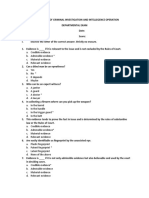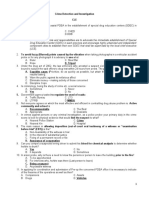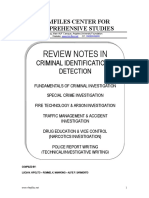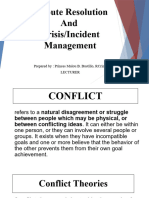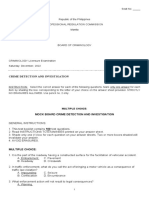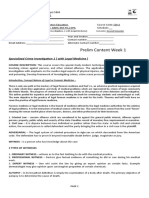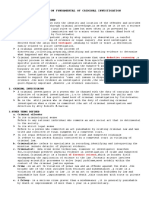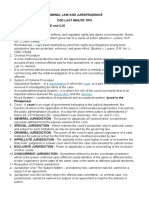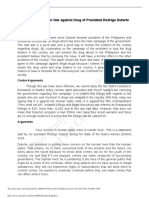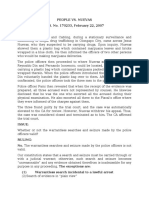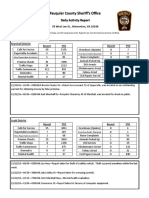0% found this document useful (0 votes)
82 views2 pagesCrime Investigation Tips Guide
This document outlines fundamentals and tools of criminal investigation. It discusses the phases of investigation which are to identify, locate, and provide evidence of a suspect's guilt. An investigating team typically includes a team leader, investigator, photographer, evidence custodian, and composite illustrator. Upon arriving at a crime scene, the first responder should check the victim's condition while others secure the area. Tools of investigation include gathering information from witnesses, records, and modus operandi files as well as conducting interviews and using scientific instrumentation to examine evidence. The document also discusses custodial investigation, rights of those under investigation, deductive vs inductive reasoning, and specialized topics like crime scene investigation, interrogation techniques, and accident investigation.
Uploaded by
Chivas DulguimeCopyright
© © All Rights Reserved
We take content rights seriously. If you suspect this is your content, claim it here.
Available Formats
Download as DOCX, PDF, TXT or read online on Scribd
0% found this document useful (0 votes)
82 views2 pagesCrime Investigation Tips Guide
This document outlines fundamentals and tools of criminal investigation. It discusses the phases of investigation which are to identify, locate, and provide evidence of a suspect's guilt. An investigating team typically includes a team leader, investigator, photographer, evidence custodian, and composite illustrator. Upon arriving at a crime scene, the first responder should check the victim's condition while others secure the area. Tools of investigation include gathering information from witnesses, records, and modus operandi files as well as conducting interviews and using scientific instrumentation to examine evidence. The document also discusses custodial investigation, rights of those under investigation, deductive vs inductive reasoning, and specialized topics like crime scene investigation, interrogation techniques, and accident investigation.
Uploaded by
Chivas DulguimeCopyright
© © All Rights Reserved
We take content rights seriously. If you suspect this is your content, claim it here.
Available Formats
Download as DOCX, PDF, TXT or read online on Scribd
/ 2





